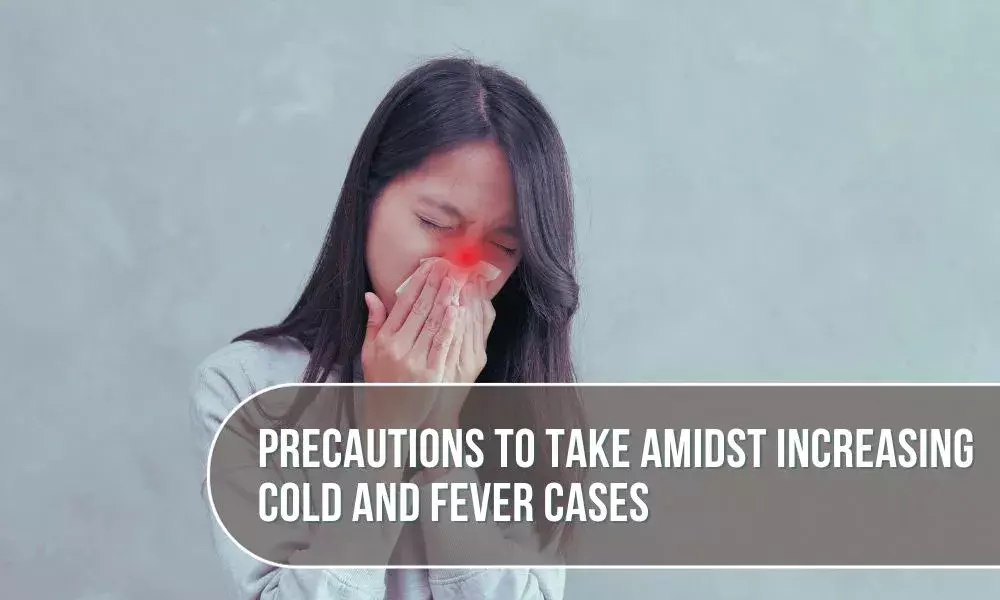As per recent news, there has been an increasing trend in cases with high fever, cold and cough, and body aches across India. According to doctors, there is a surge in viral illnesses, especially flu-like illnesses.
According to the World Health Organization (WHO), seasonal influenza is an acute respiratory infection caused by viruses.
However, apart from influenza and dengue, waterborne diseases like Typhoid infection, hepatitis, bacterial infections of the gut, and malaria are other common infections causing a spurt in fever cases post-monsoon.
In recent weeks, there have been cases of prolonged coughing, sore throat, sneezing, watery discharge from the eyes, and wheezing in many people. The spurt in these cases is due to the common flu virus.
The weather conditions with slightly cooler temperatures and humidity have become optimal for virus survival. Consequently, there is a surge in viral illnesses, especially flu-like illnesses. The flu can affect our immunity and make us prone to other infections, making us weaker and more ill.
It is, therefore, essential to understand the warning signs and preventive measures to be taken against the flu.
What are the warning signs?
People experiencing any of these warning signs should obtain medical care right away.
-
Difficulty breathing or shortness of breath.
-
Persistent pain or pressure in the chest or abdomen
-
Severe or repeated vomiting.
-
Persistent dizziness, confusion, inability to arouse
-
Low blood pressure
-
Rapid heart rate
-
Severe dehydration
-
High grade fever or temperature lower than 95-degree F
-
Seizures
-
Not urinating
-
Severe muscle pain
-
Severe weakness or unsteadiness
-
Worsening of chronic medical conditions
When to see a doctor?
People with any of the above warning signs must immediately see a doctor. Such people need immediate testing, and admission to a hospital may even be required depending on the sensitivity of the case.
People without warning signs must see the doctor if the fever lasts more than 24 to 48 hours. Further, if the fever persists after three to four days, regardless of other symptoms, one must consult a doctor.
Treatment during the flu
Treatment aims to relieve symptoms and encourage recovery through supportive care.
-
Staying hydrated aids in the maintenance of biological functioning as well as the management of fever-related fluid loss.
-
Steam, and gargles can help control the symptoms.
-
Throat lozenges may provide temporary relief from specific symptoms.
Precautionary steps that must be followed
-
Frequent hand sanitization and sanitization of work surfaces
-
Wear masks in all public spaces and follow social distancing.
-
Always use a tissue while sneezing and coughing, and sanitize your hands immediately.
-
If someone has flu-like symptoms, they should isolate themselves for 3 -5 days or at least till the fever has settled for a minimum of 24 hours.
-
Have a diet that may help increase immunity.
The seasonal change in weather conditions is often accompanied by seasonal influenza. Taking preventive measures and timely treatment is vital to control the symptoms.





